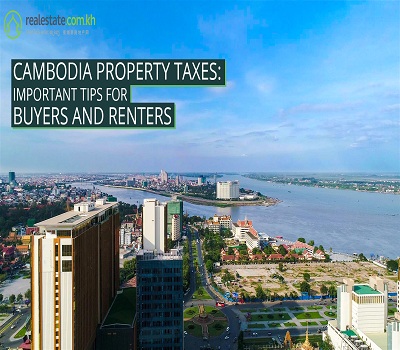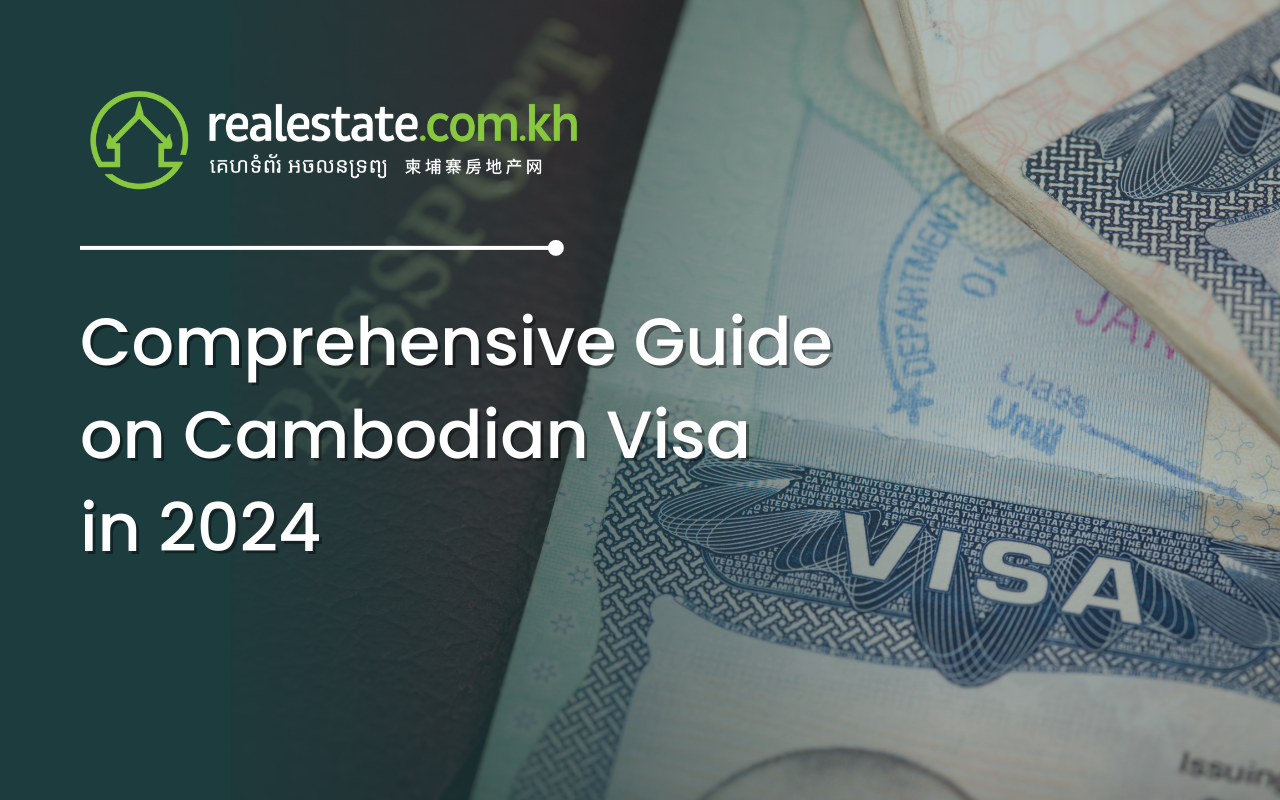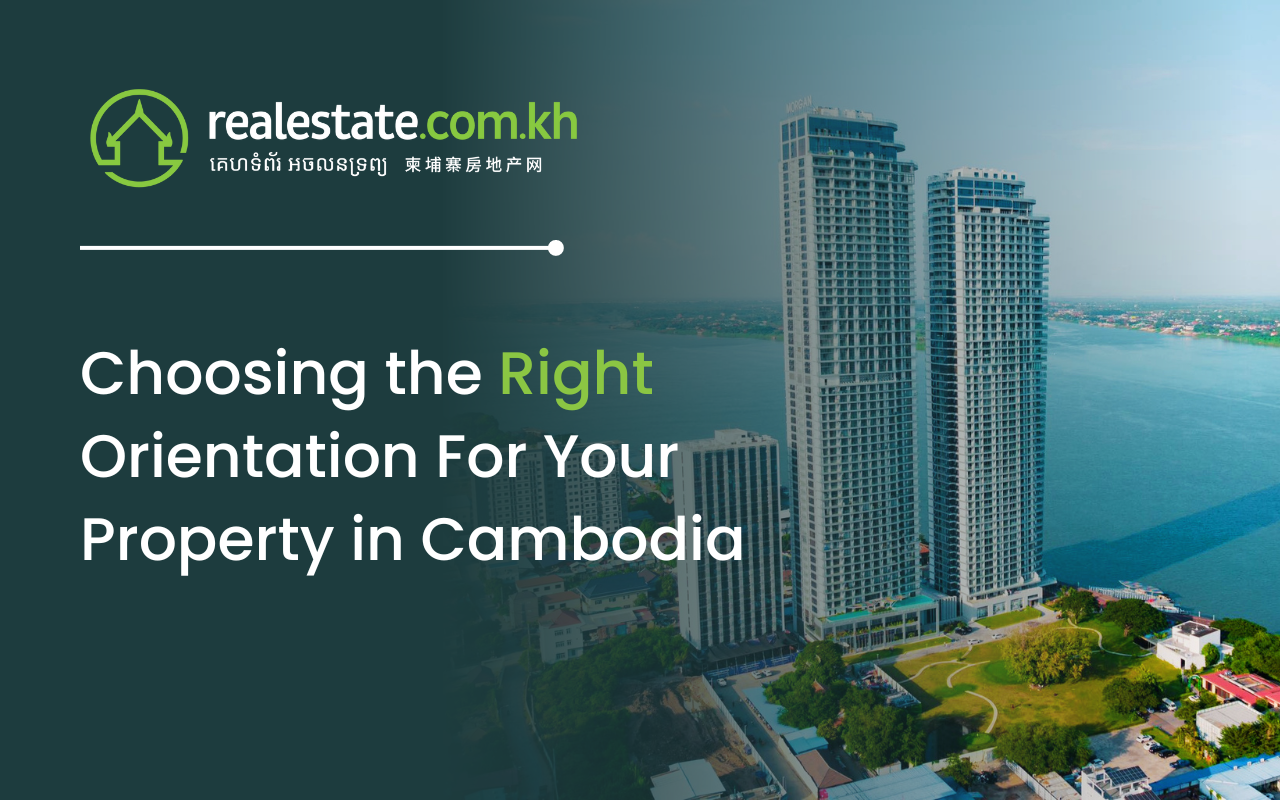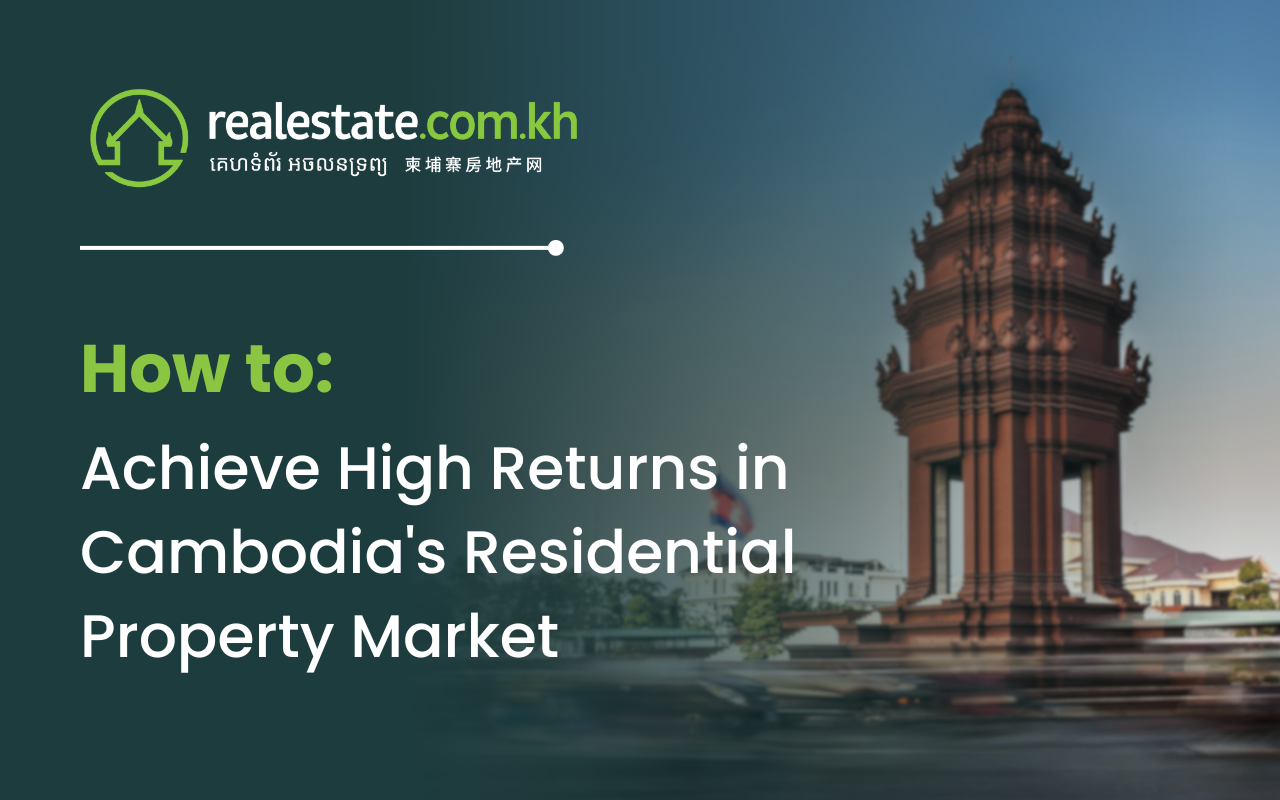Gaining a basic understanding of property taxes in Cambodia is important for property owners, sellers, and buyers in the country. Knowledge of these important obligations will not only make transactions easier but also help everyone avoid unnecessary costs and penalties.
This guide is designed to give you a basic understanding of obligations so you don’t go blind into Cambodia’s property market.
Overview of Property Taxes in Cambodia:
- Cambodia has a 0.1% Property Tax applied on Immovable Properties
- Property Taxes must be paid every year around September
- Properties below $25,000 (100 Million KHR) are exempt from Property Tax
- Agricultural land, industrial, and state-owned lands are exempt from Property Tax
- Local tax offices have a valuation matrix called the Tax Base for specific property types and sizes within their jurisdiction, this factors into the final Property Tax that has to be paid.
How much is Property Tax in Cambodia?
Property taxes in Cambodia are officially referred to as “Tax on Immovable Property” (TOIP) and levies an annual tax of 0.1% on properties that have a value of more than $25,000 (100 million KHR). The term “Immovable Property” includes plots of land, infrastructure on land, and buildings.
NOTE: Properties valued under $25,000 are exempt from paying the Property Tax
Property Tax is generally calculated by the following formula:
(80%*(tax base)-$25,000)*0.1% = Property Tax
Sample calculation:
Mr. Ivanov owns a reinforced concrete building with 3 floors with each floor having 15m x 25m of floor size. Mr. Ivanov consulted with the Property Valuation Commission and retrieved the following Tax Base relevant to the property:
| Land price per sqm | $1,000 |
| Ground floor per sqm | $250 |
| First-floor per sqm | $200 |
| Second-floor per sqm | $150 |
Mr Ivanov’s 3-storey building’s property tax can then be calculated like this:
| Land price | 25m x 40m x $1,000 | $1,000,000 |
| Ground floor | 15m x 25m x $250 | $93,750 |
| First-floor | 15m x 25m x $200 | $75,000 |
| Second-floor | 15m x 25m x $150 | $56,250 |
Tax Base of Mr Ivanov’s property: $1,225,000. Let’s take this Tax Base and apply the Property Tax formula.
(80%*($1,225,000)-$25,000)*0.1% = $955 will be the Property Tax Mr Ivanov has to pay every year for his 3-storey building.
What is a Tax Base and How is it calculated?
A Tax Base is a price per square metre for a certain property type assessed by the Ministry of Economy and Finance. Here is a table of the Tax Base for properties located in Daun Penh, Chamkarmon, 7 Makara, and Toul Kork as of 2018:
TAX BASE AS OF 2018 |
TYPE OF BUILDING |
|||||
Part of building |
Building age <10 years (USD/sqm) |
Building age >10 years (USD/sqm) |
||||
Reinforced concrete framework |
Semi-permanent structure |
Condo |
Reinforced concrete framework |
Semi-permanent structure |
Condo |
|
| Basement | $200 | $200 | $200 | $180 | $180 | $180 |
| Ground floor (E0) | $250 | $120 | $600 | $200 | $100 | $500 |
| First floor (E1) | $200 | $100 | $600 | $150 | $80 | $500 |
| Second-Fifth floor (E2-E6) | $150 | $80 | $600 | $100 | $60 | $500 |
| Six-Tenth floor (E6-E10) | $700 | $700 | $700 | $600 | $600 | $600 |
| Eleventh floor onwards (E11) | $800 | $800 | $800 | $700 | $700 | $700 |
Registration Tax (a.k.a. Transfer/Stamp Tax)
The Registration Tax (a.k.a. Transfer/Stamp Tax) is the tax paid for transferring property ownership or right occupancy of land that does not have a standing building on top. This is a 4% tax derived from the Tax Base of the property in question.
This property-related tax is crucial to know if you’re someone looking to buy or sell property in Cambodia. Sellers are generally the ones shouldering the transfer tax, though it can go either way - this is best discussed in clear terms with whoever you may be transacting with.
NOTE: Properties transferred to direct kin via inheritance are exempted from the Registration Tax. The relevant Prakas states “transfers between spouses, parents, and children, or grandparents and grandchildren, will no longer require this tax”
Calculation formula: (Tax Base*4%) = Registration Tax
Sample calculation: ($100,000*4%) = $4,000 Registration Tax
Property Tax on Rental Property
Locals and foreigners who own and rent out their properties need to pay Rental/Income Tax every year. A foreign investor who buys property here and rents it out needs to pay 14% of the gross rate annually while locals have to pay 10%.
Property Tax on Unused Land
The Unused Land Tax is a 2% tax levied on bare plots of land with no building constructed and abandoned landed properties in cities like Phnom Penh. The Unused Land Tax is determined by the Unused Land Appraisal Committee (ULAC).
How is Property Tax paid in Cambodia?
Property Taxes can be paid via local tax office branches or through ACLEDA Bank, Canadia Bank, Vattanac Bank, or Cambodia Public Bank. For already registered properties, taxpayers will only need the tax payment receipt of the previous year or their Property Tax Registration ID.
For unregistered properties, owners must contact the local tax office their property is in. The following documents will be required for registration:
- Tax Form PT01 - a form issued by the General Department of Taxation (GDT) that asks owners to outline the specifics of their property.
- Tax Form PT02 - another form issued by the GDT which serves as a tax application form.
- National ID Card, Birth Certificate, or Passport
- Residence Book or Family Book or Residency Letter
Other documents may be required depending on the status of those involved in the transaction. We highly encourage seeking legal assistance for more specific matters.
Capital Gains Tax in Cambodia
The Capital Gains Tax in Cambodia is a flat 20% rate. The Capital Gains Tax was promulgated through Prakas 346 in April 2020 and was initially to be enacted in July 2020. However, the advent of COVID-19 delayed its implementation to January 2022 to keep Cambodia's property market activity going throughout the pandemic.
Contrary to what most people perceive: The Capital Gains Tax in Cambodia is not exactly new; businesses in the Kingdom have always paid capital gains. The material difference now is that it applies to individuals, especially those looking to sell immovable property a.k.a. real estate. A more thorough discussion of Capital Gains Tax in Cambodia can be found here.
The Capital Gains Tax in Cambodia can be calculated in 2 different ways:
Actual Expense Deduction Method
This method takes the sales proceeds and subtracts the expenses the seller made on that property to get the actual Capital Gains Tax to be paid. These deductibles can be the purchase cost, consulting fees, registration tax, commissions, and even advertising. These actual expenses are deducted from the sales proceeds and 20% of the difference will be the Capital Gains Tax to be paid.
There are more applicable deductibles so we highly suggest you keep tabs on the expenses you made in your property if you are planning to sell in the future.
Determination-Based Deduction Method
This method takes 80% of the sales proceeds and subtracts it from the whole sales value. The result will be the Capital Gains and 20% of it will be the Capital Gains Tax to be paid. This method is highly beneficial for property owners who buy low and are planning to sell high.
Capital Gains Tax in Cambodia is expected to be enforced by January 2022. Once the law is in effect, we highly encourage keeping tabs on your expenses on the property to properly assess which method applies best in your case.
Article by:





Comments